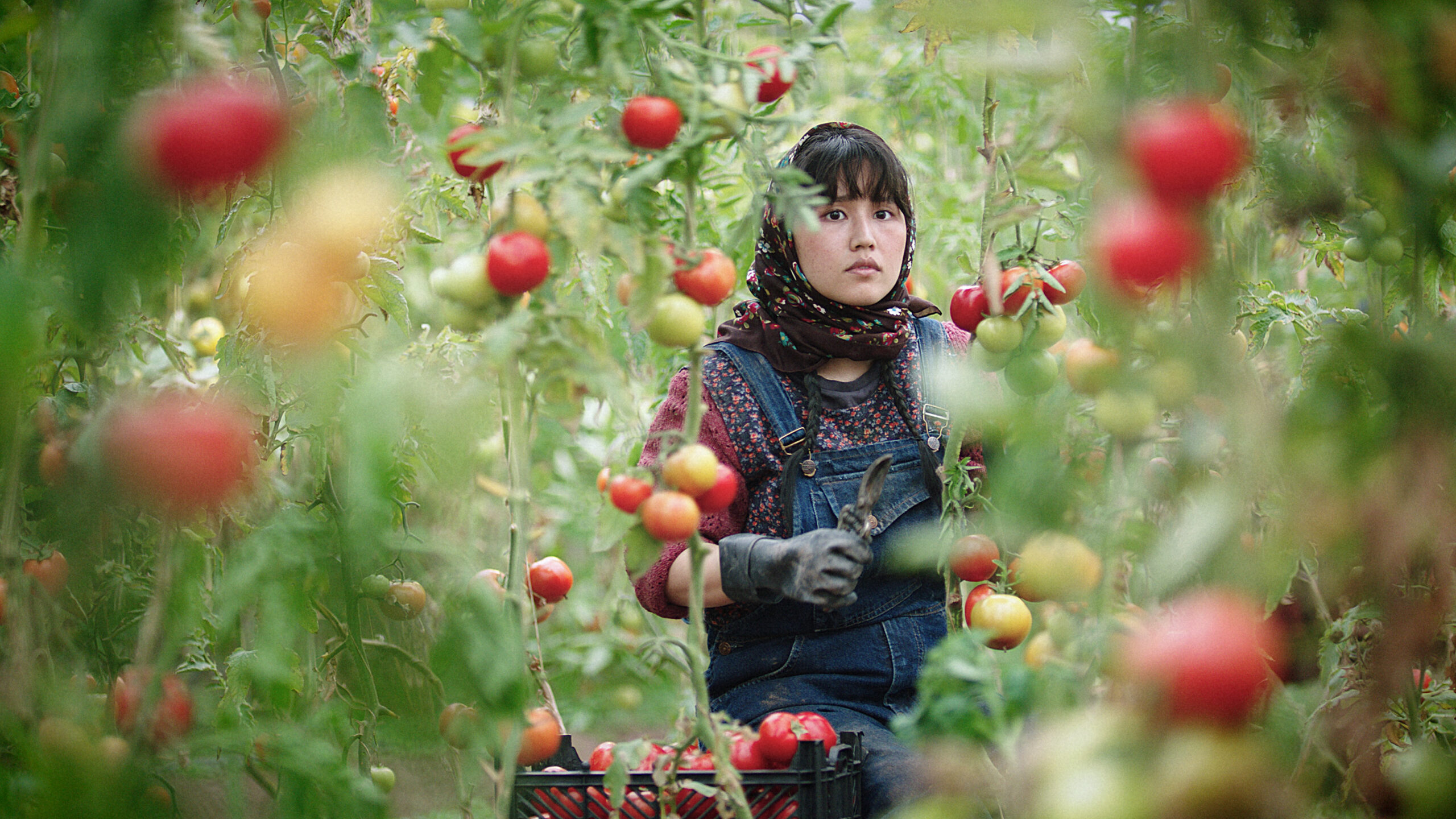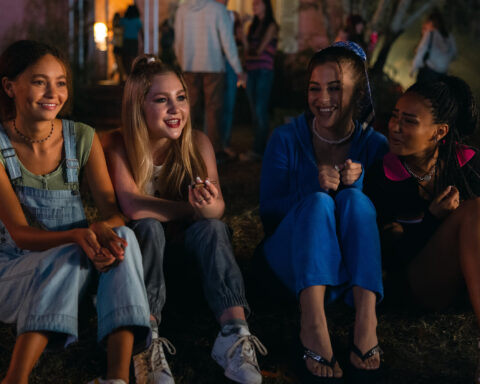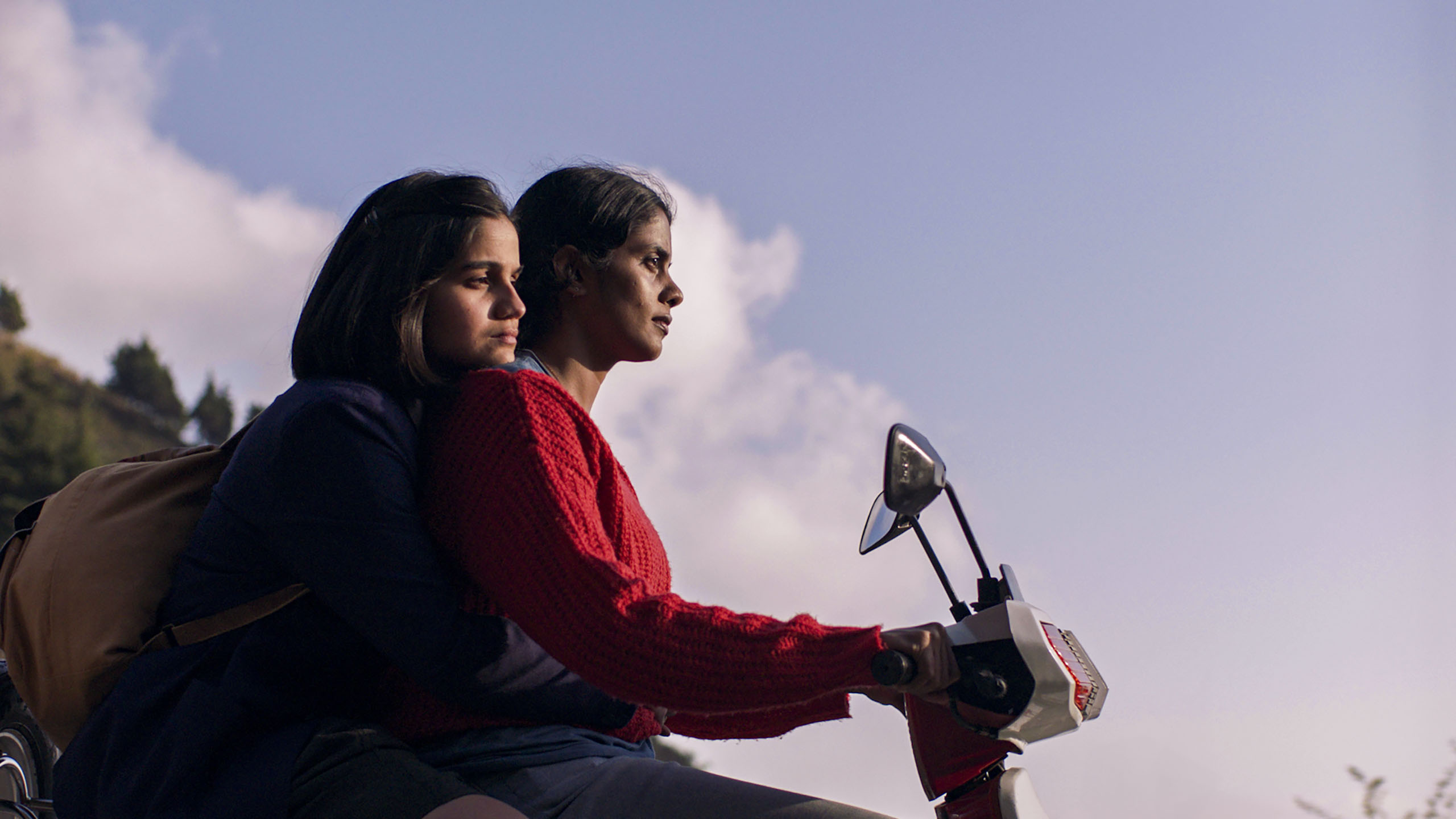Across the globe, thousands of refugees lose their lives in the relentless pursuit of escaping the clutches of poverty and conflict. The arbitrary boundaries that divide nations stand as a deceptive construct, blurring the lines between empathy and indifference. Envisioning a world devoid of these imaginary barriers is imperative, yet it remains a utopian concept. Touching upon such a sensitive subject, debutant filmmakers Raha Amirfazli and Alireza Ghasemi immerse us in In The Land of Brothers, unfolding as a poignant dramatization of the Afghan refugee experience in Iran through a deeply emotional portrayal of tragic yet resilient events. The filmmaker duo skillfully weaves a triptych that depicts the plight of these refugees, resonating far beyond geographical boundaries. With both heart-wrenching emotion and unyielding fortitude, the film artfully captures the essence of human struggle in forced exile, rendering the tale not as a localized tragedy but as a universal vicissitude etched in the annals of human experience.
In The Land of Brothers unfolds over two decades in three chapters, beginning in 2001. The narrative kicks off in Bojnord, introducing us to Mohammad (Mohammad Hosseini), a 15-year-old student who finds himself entangled with the Iranian police due to the absence of his identification card. At the police station, Mohammad is tasked with the arduous job of cleaning up a flooded basement filled with archival folders, alongside other refugees enlisted for unpaid labor. He also works on a horticultural farm with fellow Afghan refugees and forges an affectionate bond with Leila (Hamideh Jafari), a young girl residing with her elder brother, Qasem (Bashir Nikzad). Mohammad’s life takes a drastic turn when he becomes the target of the predatory gaze of one of the police officers. A decade later in Bandar Anzali, Leila, now married and a mother, conceals her husband’s death from her Iranian employers, driven by the fear of deportation. He is determined to shield her son and safeguard her employment. In the final chapter, set in 2021 Tehran, Leila’s brother, Qasem, learns of his son’s death in Syria. Simultaneously, an announcement is made regarding Iranian citizenship for long-term Afghan residents. Qasem, burdened by this revelation, struggles with the daunting task of informing his wife, about their son’s death, as the citizenship ceremony approaches.

Through these intricately woven narratives, the film encapsulates a tale of survival and familial struggles across shifting landscapes and turbulent times. It unfolds like an epiphany, a deliberate dance with emotion. Its unhurried narrative mirrors the emotional ebb and flow of Afghan refugees in Iran. Immersing oneself in its deliberate rhythm, the story’s lingering sensibility gradually places us in the shoes of these helpless souls, wrestling with the challenge of adapting to unfamiliar terrain. Within the confines of school and horticulture, Mohammad, an attractive and bright student, finds safety. Yet, on the streets, he faces the looming threat of having his innocence robbed by law enforcers. The snow-laden, wintry landscape of Bojnord becomes a metaphor for his challenging plight, where he must battle not only the freezing temperature but also the harsh circumstances surrounding him. The Caspian Sea, with its vast expanse, transforms into a reservoir, concealing the somber reality of Leila’s husband’s demise, much like a hidden secret. Its waters, calm and indifferent, become a symbolic shroud, veiling the painful secrets that ripple beneath the surface. In a parallel act of concealment, Qasem adorns a mask—an enigmatic veneer that extends beyond mere faces but also shields the harsh reality of his son’s death from his deaf wife, Hanieh (Marjan Khaleghi). Droplets of water cascading from washed clothes correspond to the tears streaming down Qasem’s face as he breaks down inconsolably. Each protagonist in every segment possesses a layer reflecting the intricate relationship within the realm of both nature and human artifice. At times the necessity of survival gives rise to lies, a harsh lesson in the relentless pursuit of life. Their stories echo, reverberating in the unforgiving spaces where harsh reality and concealment intersect. In an uncharted land, each character grapples with an unending cycle of exploitation and trauma. The looming specter of deportation haunts the lives of Mohammad and Leila, fueling their fears. Through Qasem’s story, we realize that Afghan refugees are denied equal citizenship unless a family makes the ultimate sacrifice for a country that has never granted them status. This sacrifice becomes the key to citizenship for the surviving members, leaving the deceased with a past erased and untold.
While the first two stories unfold with the speed of a realization, adopting a slow and deliberate narrative, the pace mirrors the emotional currents of Mohammad and Leila’s dilemma. Adjusting to its lingering tempo, immersed in its loitering sensibility, demands time. However, the film encounters a loss of intrigue in its final section. Amirfazli and Ghasemi opted for a story that needed more time to align with the precision seen in the unfolding of human experiences in the preceding segments. The treatment in this section tends towards the strands of melodrama, and the final moment feels hurried and lacks complexity. After a strenuous creative sprint in the first two stories, it seemed that the storytellers, in need of a breath, opted for a shortcut, leaving behind a hint of creative exhaustion in their wake.

Farshad Mohammadi‘s cinematography skillfully avoids overshadowing the narrative and characters, offering ample space for their essence to shine, whether in snow-clad landscapes or the confined spaces of Leila’s employer’s residence and Qasem’s shanty. In a striking scene, a long shot captures Leila confronting grief on the upper floor, while below, her employer and friends revel, forming a stark image that enhances both the visual allure and emotional depth of the storytelling. Hayeseh Safiyari‘s editing skillfully weaves the three stories, seamlessly intertwining emotional currents with a persistent rhythm, creating a stirring symphony of emotions. Taco Drijfhout‘s sound design conjures a distinct atmosphere, transporting us from the mundane humdrum of everyday life to something both simple and uniquely extraordinary.
Amirfazli and Ghasemi, besides extracting solid performances from Mohammad Hossei, Hamideh Jafari, and Bashir Nikzad, adeptly develop their characters with a balanced touch. This nuanced approach allows the performances to shine without unnecessary exaggeration, reflecting a keen directorial vision that ensures each character’s journey is thoughtfully and authentically presented. As the film concludes, we come to realize that its title conveys an ironic message. Despite Iran hosting five million Afghan refugees, the social position of being a ‘brother’ remains an entitlement not easily attained. In The Land of Brothers is a heart-rending portrayal that delves into the enduring resilience of individuals confronting adversity, showcasing an indomitable spirit to persist despite life’s merciless challenges.
In the Land of Brothers won The Directing Award in the World Cinema Dramatic section at the 2024 Sundance Film Festival.






